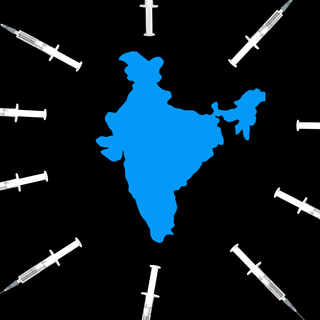An investigative study of aquaculture farms conducted across 10 Indian states has found evidence of hazardous levels of metals, as well as severe violations of public health, food safety, and environmental and animal welfare standards.
All of the violations hold the potential to cause long-term harm to human health, especially to vulnerable populations such as children and pregnant women.
“The lack of regulation in the intensive fish farming sector is a major cause for concern as it not only has long-term ecological and potential health impact but also reveals how low the bar is for animal welfare in the country,” said Varda Mehrotra, the executive director of The Federation of Indian Animal Protection Organisations (FIAPO), the organisation that conducted the study along with the NGO All Creatures Great and Small (ACGS).
Related on The Swaddle:
Some Areas of the Ocean Now Have Seven Times More Plastic Than Baby Fish
They studied about 250 fish and shrimp farms across the nine highest producing States and one Union Territory: fresh and brackish water farms in Andhra Pradesh, Tamil Nadu, Pondicherry, Gujarat, West Bengal, and Orissa, and freshwater farms in Bihar, Jharkhand, Chattisgarh, and Assam. Tamil Nadu was found to have the worst water quality in fish farms, while Andhra Pradesh, West Bengal, and Pondicherry exhibited high-level public health hazards. The farms in Tamil Nadu, Bihar, and Orissa were found to be the most harmful to the environment.
Across the country, the study found fish farms having high levels of lead and cadmium contamination—both of which can pass to humans, upon consumption of fish, and cause long term damage. A majority of fish farms faced the problem of nitrogen overdose, as a result of negligible or nonexistent waste management systems, causing algae growth and low oxygen levels in the water. It also found many fisheries dump their waste in nearby water bodies and rivers, thus sending the polluted water back into the system for human use.
The study also found evidence of human defecation in some of the fish farms surveyed across the state. While in Tamil Nadu, researchers observed people bathing in and around fish farms using soaps. They found waste dumps near or inside fish farms in Bengal and Bihar.
This lack of proper waste disposal and management creates a toxic cycle of waste and antibiotics: medicines are administered to fish in an unregulated manner so they survive in these otherwise uninhabitable environments. Nearly 40% of the farms were practicing precautionary use of antibiotics to prevent disease outbreaks.
The authors of the study warn that aside from the obvious animal welfare violations, the unregulated use of antibiotics in fish poses a threat to both human health (such medication can pass to fish-consumers, furthering antibiotic resistance) as well as the environment. “Unclean ponds laden with growth-enhancing hormones lead to bloated and sickly fish that are low on nutritive value and loaded with antibiotics,” Koushik Raghavan, the lead investigator of the report, told News18. “The prophylactic use of antibiotics in fish farms can cause antimicrobial resistance in human beings and is a severe public health concern.”
Such unhygienic conditions have led to frequent disease outbreaks at half the farms visited and caused significant commercial losses. In the past, contaminated fish have had to be disposed of on a large scale. But the authors note in the study that at several instances, farmers were found to be selling these diseased fish and shrimps at the local market to minimise their losses, furthering risking human contamination.




